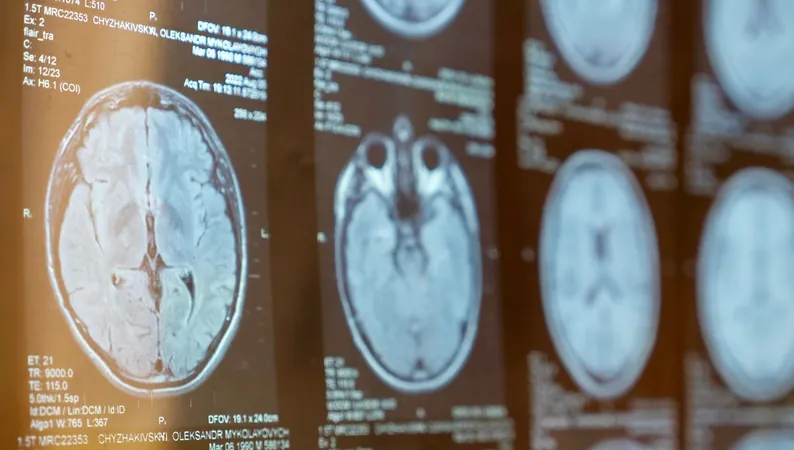
Unraveling the Link Between Epstein-Barr Virus and Multiple Sclerosis: The Quest for a Cure
2025-04-08
Author: Kai
Recent studies have established a significant connection between the Epstein-Barr virus (EBV) and multiple sclerosis (MS), a debilitating autoimmune disease. Research led by Professor Alberto Ascherio and his team has uncovered compelling evidence that nearly all MS cases arise as a delayed response to EBV infection, which is prevalent among humans as a member of the herpes virus family.
By analyzing data from 10 million US military veterans, Ascherio’s findings highlighted a unique geographical distribution of MS: it is notably rare in tropical regions but more common in temperate zones. For instance, individuals migrating from high-incidence areas to lower-risk locales experience a decrease in their MS risk, while those moving from tropical to temperate climates see an increase.
This intriguing epidemiological pattern prompted researchers to investigate the environmental and lifestyle factors contributing to MS development. Previously, scientists considered the hygiene hypothesis, suggesting a lack of early exposure to microorganisms weakens the immune system, potentially increasing MS risk. However, Ascherio's observations began to hone in on the relationship between infectious mononucleosis—which is primarily caused by EBV—and MS development.
Over time, mounting evidence has illustrated this link, though the precise biological mechanism remains elusive. One theory posits that the immune response triggered by EBV may mistakenly attack human proteins found in the brain, while another suggests the central nervous system may see viral reactivation occurring within the brain or spinal cord.
This connection between EBV and MS has invigorated research into possible treatments. Scientists are now exploring antiviral medications as adjuncts to conventional MS therapies, and the development of a vaccine aimed at modulating the immune response is on the horizon. While Professor Ascherio is optimistic about future research, he cautions that meaningful breakthroughs may take years rather than months to emerge.
However, the path to these advancements is fraught with challenges. Ascherio highlighted the significant funding cuts affecting medical research under the previous administration, which have stymied progress in finding a cure. With vital resources and data accumulated over decades, researchers are primed for breakthroughs but are grappling with limited funding - likening their situation to having developed a groundbreaking telescope without the backing needed to launch it.
Amidst these challenges, hope remains with prestigious awards such as the Breakthrough Prize, which aims to encourage and fund groundbreaking medical research. As it stands, the collaboration and innovation within the scientific community may just be the key to unearthing a comprehensive treatment or even a cure for MS linked to EBV. As more contributions to this field arise, the future of MS research looks promising, aiming for a day when this elusive cure becomes a reality.
 Brasil (PT)
Brasil (PT)
 Canada (EN)
Canada (EN)
 Chile (ES)
Chile (ES)
 Česko (CS)
Česko (CS)
 대한민국 (KO)
대한민국 (KO)
 España (ES)
España (ES)
 France (FR)
France (FR)
 Hong Kong (EN)
Hong Kong (EN)
 Italia (IT)
Italia (IT)
 日本 (JA)
日本 (JA)
 Magyarország (HU)
Magyarország (HU)
 Norge (NO)
Norge (NO)
 Polska (PL)
Polska (PL)
 Schweiz (DE)
Schweiz (DE)
 Singapore (EN)
Singapore (EN)
 Sverige (SV)
Sverige (SV)
 Suomi (FI)
Suomi (FI)
 Türkiye (TR)
Türkiye (TR)
 الإمارات العربية المتحدة (AR)
الإمارات العربية المتحدة (AR)